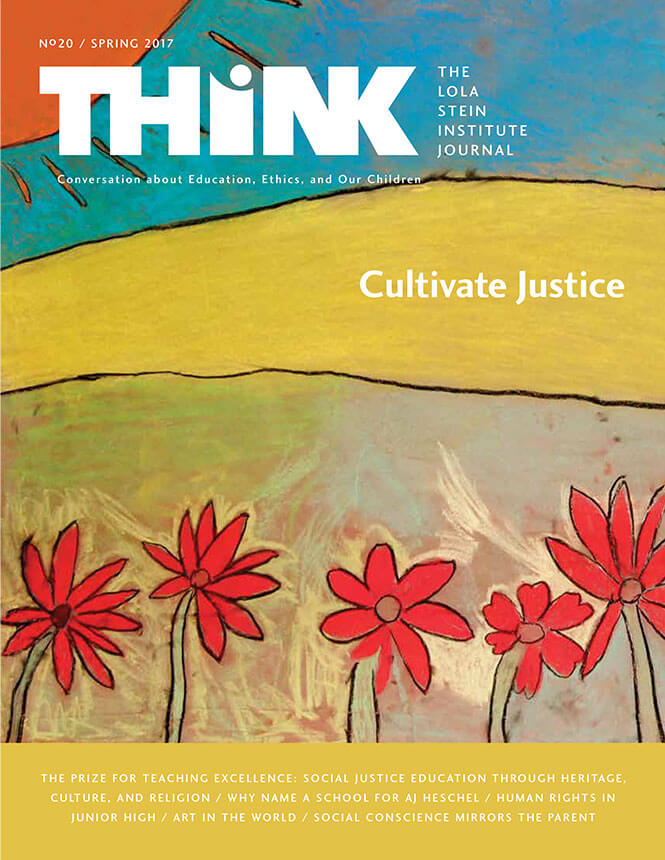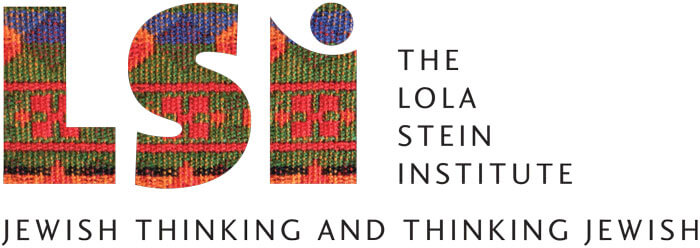- How We Teach

- First Column
- Second Column
- Third Column
- Case Studies

- First Column
- Second Column
- Culture & Community

- First Column
- Second Column
- News & Views

- Admissions

- First Column
- Second Column
- Support Us

- About

- First Column
- Second Column
- Parent Hub
- Attend an Open House
- Take a Tour
- Donate Now
- Calendar
- Blog
- 416-635-1876
- Search
The Social Conscience of Our Children
A Mirror Reflection of Us
A recent trend encourages our children to engage in a “give back” project on the occasion of their bar or bat mitzvah, an act of tzedakah, (righteousness). The projects support initiatives in the Jewish and wider community. Through the lens of child development, the timing of these projects is significant; our young adults are learning to take initiative, to choose what causes move them and why, and to contemplate the dilemmas that face the world and how they might personally affect change.
It is fascinating to try to understand what motivates a desire for social justice and whether one’s reason for engaging matters. Do we reflect on whether our kids undertake in these projects because of social pressure, parental expectation, or the positive regard of others, in addition to a personal desire to contribute to change? Much has been written about where the ego comes into play with social justice, or, otherwise put, the tension between self-interest and altruism. Some conclude that there is always an ego component; that it’s natural and perhaps necessary.
A key question is how to lay the foundation for social justice in our children at a young age, so that, instead of functioning in isolated projects, a social conscience becomes integrated into who they are. What are the nuances of developing this awareness? How do we help children understand the difference between doing something for someone and doing something with someone?
As parents we teach our children to construct their moral code through our own personal interpretations, explanations, and emotional reactions, but also, and most tellingly, through our actions. We have to take note of the way in which we model how to manage experiences that relate to justice. In his well-revered book, The Nature of Prejudice (first published in 1954)[1], American psychologist and educator Gordon Allport highlights the importance of what children learn at home. He writes that what they observe at home and learn over time, they come to believe. He teaches that, over the course of their development, children internalize these learned beliefs until the beliefs are very difficult to shift.
Studies suggest that children, as early as 15 months of age, begin to recognize fairness[2]. NYU professor and psychologist Martin Hoffman explains that these early experiences “provide the raw material from which children can construct increasingly complex empathy-based sense of fairness and concern for others”.[3] Furthermore, it is important to understand that very young children (preschool age) have been shown to hold prejudices and to be very interested in learning about the differences between people.[4] The psychology literature that discusses greater attachment further indicates that if a child’s own empathic needs are not met, his/her own needs will always seem more pressing.
As parents we need to recognize what biases we present to our children. Do we somehow suggest that our needs are greater than others’ needs? Are we messaging that our needs are more imperative than our children’s needs? Do we subscribe to beliefs that suggest that others who are suffering deserve their fate? Especially today, we must listen to how we reflect on the news while we are with our children, and to how we respond to events when in social situations. Are we emitting an unedited personal impression with or without expletives? Are we acting with an appreciation that young eyes and ears are tuned in to our every move?
Do we think we can shame our children into empathy? At times many parents become overwhelmed by behaviours they feel show their children acting “spoiled” “ungrateful, and they react in a disproportionate way. Shame is even part of the ever-present and seemingly innocuous dinner scenario: “You had better eat your food. Do you know how many kids have nothing to eat?”
With an emotional intensity that is bewildering to children, parents communicate that it is shameful be so unaware of the needs of others in the world. This approach contributes to a “doing for” sentiment which is neither constructive from a social justice perspective nor educational from a child’s point of view.
My experience is that children can not be shamed into feeling empathy. Negative approaches to conscienceness-raising are counterproductive. To our children, the all important factors in nurturing a sense for justice in society are the affective, motivational, and cognitive aspects of modeling empathy.
Ours is described as a very self-focused society, and parents often ask me how they can resensitize their seemingly desensitized children. I answer that we have to evolve our perception of social consciousness; we have to develop our children’s self-esteem and self-worth and we must not turn social justice into another item on our “to do” list or into the badge of a “great kid”.
Social justice education is greater than platitudes. A large body of literature on the development of prejudice supports that when children feel good about themselves, they are less likely to be drawn to discriminatory views.[5] In developing social conscience and empathy in your child and for your child, you are, in truth, developing social and emotional intelligence in your child.
We need to find quiet spaces starting when our children are very young. We must model how to self-reflect, how to understand, how to actively listen. We have to be role models who are seen to consider different perspectives and are open to learning and hearing with thoughtful intention. With our own empathy and compassion, we can activate our children and inspire a social consciousness that is deeply rooted and meaningful.
As a society we tend focus too much on the grand gestures of social activism; digging wells across a continent, responding emotionally and financially to crisis and bloodshed. Instead of beginning a child’s sense of social responsibility with grand examples and then filtering down, we might do better to begin with the smallest most personal moments and build up. For example, how do our children see us speak about or treat people who are different than us, those who look different, practice different religions, or make more or less money than us? Are we modeling openness or teaching judgment? Are we lending credence to a hierarchical approach to power, money and status?
Cultivating empathy and inspiring social consciousness is not a one-project deal; it is something we commit to and consider throughout our lives. Our social conscience is a mirror reflection of who we are and how we act with ourselves and our loved ones at home and every day.
[1] The Nature of Prejudice: 25th Anniversary Edition (New York: Basic Books, 1979)
[2] M.F.H Schmidt and J.A. Sommerville, “Fairness Expectations and Altrustic Sharing in 15-Month-Old Human Infants,” PLOS ONE [online journal], October 7, 2011, http://journals.plos.org/plosone/article?id=10.1371/journal.pone.0023223
[3] M.L.Hoffman, Empathy and Moral Development: Implications for Caring and Justice (New York: Cambridge University Press, 2000), p.17.
[4] P.A. Katz and J.A. Kofkin, “Race, Gender, and Young Children,” in S.S. Luthar, J.A. Burack, D. Cicchettie, and J. Weisz, eds., Developmental Psychopathology: Perspectives on Adjustment, Risk, and Disorder (New York: Cambridge University Press, 1997), pp.51-74.
[5] S. Fein and S.J. Spencer, “Prejudice as Self-image Maintenance: Affirming the Self through Derogating Others,” Journal of Personality and Social Psychology, Vol. 73, No. 1 (July 1997), pp. 31-44.
Dr. Jasmine Eliav is a registered child clinical psychologist. She has a private practice, is a staff psychologist at The Hospital for Sick Children, a clinical consultant to BOOST Child Abuse Prevention and Intervention, and a member of The Toronto Heschel School Board of Directors.
PREVIOUS ARTICLE
An Abundance of ExcellenceSpecial Feature
Second PrizeTodd Clauer: Upper School Social Justice ProjectFirst PrizeErin Buchmann: Indigenous AwarenessA Report by Ruth BurnsteinThe Prize for Teaching Excellence 2016What Do We Have in Common?Finding the Familiar in Grade 2Our Sages Tell Us
A Mirror Reflection of UsThe Social Conscience of Our ChildrenColumns
An Interview with Dana EzerThe Jewish Foundations of a Junior High Human Rights CurriculumRecommendations for Children and the People Who Love ThemGood Books by Gail BakerPerspectives
 The Lola Stein Institute (LSI) is a centre of inventive educational thinking and addresses the challenge to re-frame schooling for the exigencies of our times.
The Lola Stein Institute (LSI) is a centre of inventive educational thinking and addresses the challenge to re-frame schooling for the exigencies of our times.









